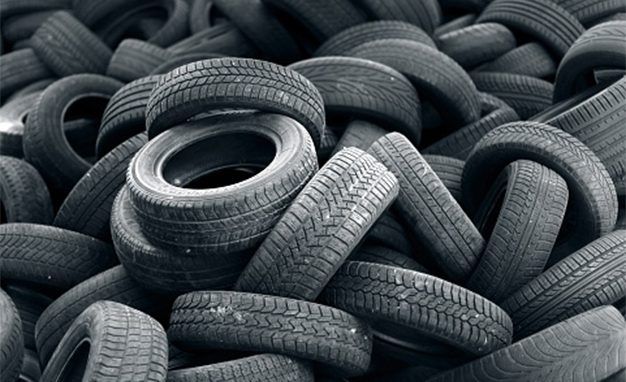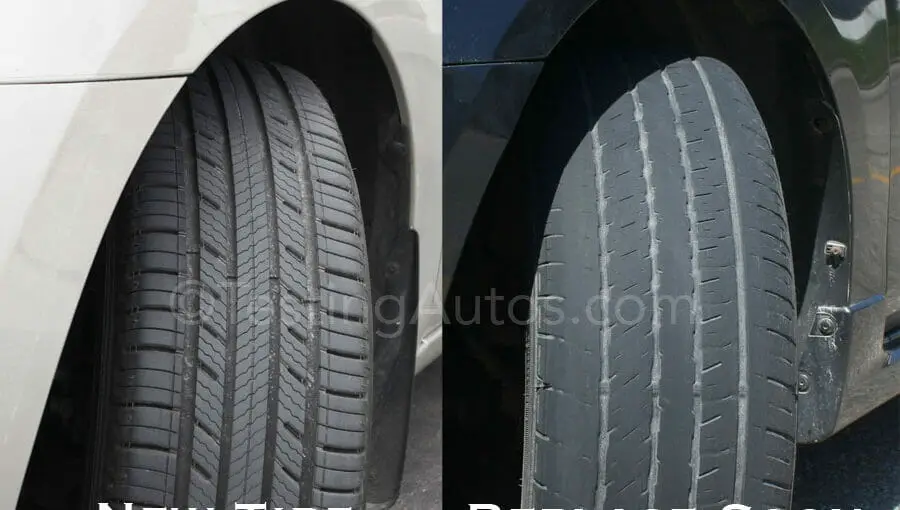How Often Should Tires Be Replaced Due to Age?
Most car owners don’t think about their tires until they have a blowout or get a flat. But tires are one of the most important parts of your vehicle, and they need to be properly maintained in order to keep you safe on the road. One question that many people have is how often should tires be replaced due to age?
The answer to this question isn’t as straightforward as you might think. There are several factors that can affect how long your tires will last, including the type of tire, the amount of driving you to have to do, and even the weather conditions in your area. However, there are some general guidelines that you can follow in order to ensure that your tires are safe and reliable.
Tires are one of the most important parts of your car, and it’s important to make sure they’re in good condition. Tires can wear out over time due to age, weather, and driving habits. So, how often should tires be replaced due to age?
The answer isn’t always cut and dry, as there are a few factors that can affect tire longevity. However, most experts agree that tires should be replaced every six years or so. This may seem like a long time, but keep in mind that tires degrade slowly over time.
If you wait until they’re visibly worn out, it could be too late. If you have any doubts about your tires, it’s always best to consult with a professional. They can help you determine if your tires need to be replaced and can give you advice on choosing the right type of tire for your needs.
How to know when it’s time for new tires?
Do Tires Go Bad With Age?
As a car owner, it’s important to be aware of the various parts that make up your vehicle and how often they need to be replaced. One such component is your tires. Tires are one of the essential parts of your car, as they provide traction and allow you to keep control while driving.
They also play a major role in fuel efficiency. While tires are designed to last for many years, they will eventually reach the end of their lifespan and need to be replaced. Many factors can affect how long your tires will last, such as driving habits, road conditions, and weather.
One common question about tires is whether or not they go bad with age. The answer is yes, eventually all tires will go bad and need to be replaced. The rubber compound in tires dries out over time, causing them to become brittle and less effective at gripping the road.
This can lead to decreased performance, increased braking distances, and even blowouts. It’s important to keep an eye on your tire tread depth and pressure levels so you can replace them before they become unsafe. Inspecting your tires regularly is the best way to ensure they are in a safe condition and aren’t going bad prematurely.
How Long is a Tire Good for With Age?
A tire’s lifespan is determined by a number of factors, the most important of which is its tread depth. Other important factors include the type of tire, driving habits, and road conditions. Most tires have a tread depth of 10/32″ when they are new. Tires typically lose 1/32″ of tread depth per year under normal driving conditions.
So, a tire with 6/32″ of tread remaining has been driven for about six years. However, tires can last much longer than six years if they are not used often or if they are driven on good roads. Tires can also last shorter periods of time if they are driven on rough roads or in extreme conditions (e.g., off-roading).
It is generally recommended that tires be replaced every six to 10 years, regardless of tread depth. This is because tires degrade over time even if they aren’t used often. The rubber compound in the tires hardens and cracks with age, which can lead to blowouts and other problems.
How Often Should You Change Your Tires Years?
It is important to change your tires regularly to ensure optimal performance and safety. Depending on how often you drive, your tires should be changed every few years. If you frequently drive in harsh conditions or on rough roads, you may need to change your tires more often.
Inspect your tires regularly for signs of wear and tear, and consult with a professional if you are unsure about when to change them.
How Do You Tell If Your Tires are Too Old?
It is important to regularly check your tires for wear and tear to ensure a safe driving experience. Here are a few ways to tell if your tires are too old:
1. Check the tread depth of your tires. The minimum legal tread depth in most states is 4/32 of an inch, but it is recommended that you replace your tires when they reach 6/32 of an inch. You can check the tread depth by inserting a quarter into the tread groove. If the top of George Washington’s head is visible, then your tread depth is 4/32 of an inch, and it’s time to start shopping for new tires.
2. Examine your tires for cracks, cuts, or other signs of damage. Even if the tread depth is still good, damaged tires need to be replaced as they could cause a blowout while driving.
3. Check the sidewalls of your tires for bulges or blisters. This could be a sign that the tire has been damaged from hitting something on the road and needs to be replaced before it fails completely.
4. Take note of how your car feels while driving. If you feel like your car is vibrating or shaking more than usual, this could be a sign that your tire balance is off or that you have a flat spot on one of your tires (which can happen as they age).

Credit: www.caranddriver.com
Tire Age Limit Law
In the United States, there is no federal law that dictates how long a tire can be used. However, many states have adopted what is known as the “tire age limit law.” This law requires that tires must be replaced after a certain number of years, regardless of tread depth.
The rationale behind this law is that tires degrade over time and can become unsafe. There is some debate about whether or not the tire age limit law is effective. Critics argue that it’s impossible to determine the age of a tire without knowing its history.
They also point out that most accidents involving old tires are due to improper maintenance rather than age. Supporters of the tire age limit law say that it helps ensure safety on the roadways. They argue that even if a tire looks fine on the outside, it may deteriorate on the inside and could fail at any moment.
Regardless of where you stand on this issue, it’s important to remember that proper tire maintenance is essential for safe driving. Be sure to check your tires regularly for wear and tear, and don’t hesitate to replace them if they show signs of aging or damage.
How Long Should Factory Tires Last?
The average car owner will get about 50,000 miles out of a set of factory-issued tires. However, there are many factors that can affect how long your tires last. Here are a few things to keep in mind:
1. The type of vehicle you drive: Heavier vehicles put more wear and tear on tires than lighter ones.
2. Your driving habits: If you regularly drive on rough roads or make quick starts and stops, your tires will wear out faster than if you stick to smooth highways and drives.
3. The climate where you live: Hotter climates accelerate tire aging, so if you live in an area with high temperatures, your tires may not last as long as someone’s in a cooler climate.
4. Proper tire maintenance: Keeping your tires inflated to the correct pressure and rotated regularly will help them last longer.
How Long Do Tires Last With Low Mileage?
It’s a common question we get here at Tires-Easy: how long do tires last with low mileage? The answer, unfortunately, isn’t as simple as we would like it to be. It really depends on a number of factors, including the type of tire, the conditions in which they are driven, and proper maintenance.
To get the most out of your tires, it’s important to rotate them every 5,000 miles or so. This helps evenly distribute wear and tear so they last longer. You should also keep an eye on tread depth and air pressure levels – both of which can impact how long your tires will last.
Generally speaking, passenger car tires can last anywhere from 25,000 to 50,000 miles. But if you drive mostly on highways in good weather conditions and maintain your tires properly, you could see them lasting much longer than that! Conversely, if you do a lot of stop-and-go driving in hot or cold weather conditions without rotting or maintaining your tires properly, they likely won’t last as long.
Are 7-Year-Old Tires Still Good?
It depends on the condition of the tires. If the tires have been well-maintained and inspected regularly, then they may still be good. However, tires over five years old should be inspected to make sure they are in good condition, as they could have been damaged over time.
Conclusion
Tires should be replaced every six years, regardless of how much they have been used. This is because tires degrade over time, even if they are not used often. The rubber and other materials in tires break down and deteriorate with age, making them less effective and more likely to fail.


